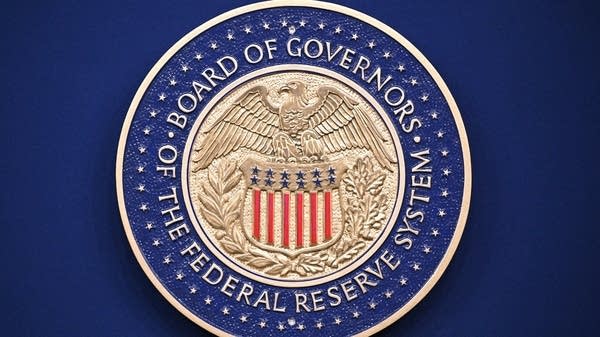Warehouses have been filling up as importers race to bring goods into the U.S. ahead of Trump's tariffs
Warehousers are reluctant to build new capacity because nobody really knows what’s likely to happen going forward.

On Tuesday morning, we got the results of a monthly survey of supply chain managers on topics including transportation, inventory management and last but not least, warehousing.
It’s called the Logistics Manager’s Index, and it found that warehousing utilization has been growing this year as importers stockpile goods ahead of the Trump administration’s tariffs.
Ocotillo Capital Partners in San Antonio, Texas, builds warehouses mostly to serve cross-border trade.
“Traditionally it’s 99% northbound product that was made in Mexico and is being shipped to the U.S. side to then be distributed,” said Nick Dyer, the firm’s principal.
He said his warehouses are seeing plenty of demand from existing clients trying to get product over the border ahead of any new tariffs.
“I think that was generally users that were filling any empty warehouse space that they already leased,” said Dyer.
But Dyer said clients haven’t been that interested in renting more warehouse space. Because leases are typically three to five years long and clients are nervous about making that kind of commitment.
As a result, Dyer is holding off on a new warehousing project he had in the works.
“For us, we have to have that confidence that the tenants are going to be there after we’ve built the building, and when we complete it, ten to 12 months from now,” said Dyer.
Warehousing construction is down more than 20% from a couple years ago, according to the Census Bureau.
“I think that warehouse operators have realized well, we can try to build out in anticipation of what 2028 might look like, or we could just enjoy very high utilization, low vacancy rates, and let that final variable, price, come into play,” said Thomas Goldsby, a professor of supply chain management at the University of Tennessee, Knoxville.
The Logistics Manager’s Index found that warehousing prices have been growing all year. Goldsby said that’s another cost that’ll find its way to consumers.













